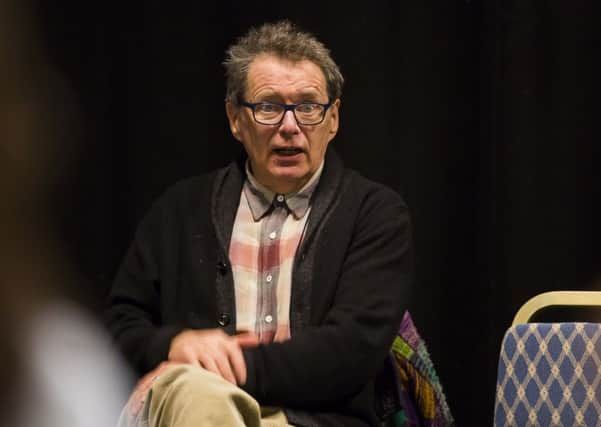French connection


He’s best known as an accomplished and versatile actor on stage, screen and television – most recently for roles in top-class TV dramas, such as Sally Wainwright’s Happy Valley and Jed Mercurio’s In the Line of Duty – but George Costigan has always, he says, had a yearning to write.
What good actors and writers share are highly-attuned observational skills and an innate sense of how to tell a story; there’s no doubt that all that time spent watching, listening to and pretending to be other people as an actor has served as excellent training for Costigan’s writing. In the past he has created work for theatre and TV but he has now moved into a new form with the publication in March of his first novel The Single Soldier.
Advertisement
Hide AdAdvertisement
Hide AdIt is an assured and impressive debut. A beautifully crafted, lyrical story set during the Second World War in rural France with an exquisitely nuanced love story at its centre, it has been described by playwright and novelist Willy Russell, no less, as ‘a magnificent, big beast of a book.’ Russell, it transpires, played a significant part in the development of Costigan’s early writing. They worked together at the Liverpool Everyman in the 1970s when Costigan was among an exciting cohort of young actors and writers – including Alan Bleasdale, Bill Nighy, Pete Postlethwaite, Julie Walters and Jonathan Pryce – who went on to become the defining voices of their generation.
“Like lots of people I have always scribbled,” he says. “I’ve been to a couple of writer’s workshops and I’m amazed by the range of backgrounds of the people you meet on those, but when I was at The Everyman Willy Russell and Alan Bleasdale were both fantastically supportive and they encouraged me to write. So I wrote a couple of plays there and I would occasionally write poetry that I thought was passable.”
The seeds for the novel were sown some time ago. Costigan divides his time between a base in North Yorkshire and the family home in France, a farmhouse in the Lot where they moved thirty years ago, and it was here that he found the inspiration for The Single Soldier. “We had gone out mushroom picking with some friends from the village and as we came out of a wood there was this house that was plonked up on top of a gorgeous hill in the middle of land that is unfarmable. Somehow it looked kind of sad and I thought ‘I wonder what the story is here…’” His friend explained that in the early 20th century the house used to stand in the village a few kilometres away, but that the owner had fallen out with his neighbour and moved the house, dismantling it bit by bit, transporting the pieces in a hand cart and had then rebuilt it in its new location. “I asked why and she said that there was no-one in the village still alive who knew the answer.” Costigan was intrigued. “Why would someone do that?” It sparked his imagination and he set himself the task of inventing a story inspired by these extraordinary real-life events.
The central character of the novel, which begins in 1942, is Jacques a young farmer living in the village of St Cirgues with his invalid mother. She has never recovered from the death of her husband, the father Jacques never knew, in the First World War. Jacques’ quiet life consists of meticulous adherence to routine – tending to the farm and looking after his mother. He accepts his situation without complaint but he is lonely. And then fate brings him a chance at happiness in the form of Simone, a young woman who has had to flee her hometown in the North. Out in the rural areas of the South West it might seem like war is far away, but the German occupation impinges on their lives, especially when the authorities announce the forced relocation of young men to work in German factories. Jacques and his closest friends Jerome and Arbel are faced with a decision – should they stay and resist or comply?
Advertisement
Hide AdAdvertisement
Hide AdIt is a dark and complex chapter of French history and one which Costigan finds fascinating. “It didn’t feel like research because I was reading about it anyway,” he says. “That’s partly to do with where we live in France. In 1944 the SS came to the village, sprayed it with bullets and then left – there were still bullet holes on our barn door when we first moved in. As an Englishman I have no understanding of what it is like to be occupied by an invading army, I couldn’t relate to it and that was the bit that really hooked me.”
The difficult moral questions that Costigan’s characters grapple with make the novel a hugely compelling read. The sense of time and place is so authentic, the characters so well drawn and believable, the dialogue so natural; Costigan handles it all with great skill. He says that his inexperience of writing in the novel form meant he wasn’t inhibited by convention.
“The joy was that I didn’t know any of the rules, so I just wrote it. I had no pressure on me because nobody cared except me. It took me 15 years to write but that never bothered me, I just kept going back to it. I really enjoyed doing it.”
The Single Soldier, published by Urbane Publications, £8.99.